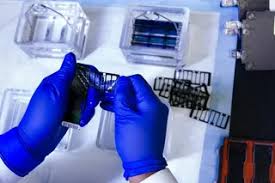Agilent announced the signing of a Memorandum of Understanding (MOU) with the Sarawak Infectious Disease Centre (SIDC) in East Malaysia. The agreement scope includes the provision of an Agilent 6475 triple quadrupole LC/MS system to boost the research advancement of neglected tropical diseases (NTDs) and other areas of disease over the next three years.
Neglected tropical diseases (NTDs) are a diverse group of 20 conditions that are mainly prevalent in tropical areas, where they primarily affect impoverished communities and disproportionately affect women and children. The Borneo-prevalent NTDs have had higher transmissions in this region where diseases, including dengue and rabies, flourish. Agilent’s new technologies will support SIDC’s research work, focusing on tropical medicines and all aspects of infectious diseases, including biomedical, clinical, and epidemiological, while enabling rapid response efforts during outbreaks by conducting research and developing diagnostic capabilities.
Agilent’s latest revolution, the 6475 LC/MS, recognized by a 2023 Scientists’ Choice Award, incorporates iFunnel technology to improve signal response. The detection limit will provide higher precision results and faster investigation for optimal research outcomes.
“With the MOU with Agilent Technologies, SIDC will leverage on the facilities and capabilities of Agilent for technology and knowledge transfer, capacity building both in research programs and human capital development as the SIDC prepares for the completion and operation of its facility by December 2025,” said Associate Professor Ivan Yap, Chief Executive Officer at SIDC.
Agilent Malaysia’s General Manager, Chai Meng Fee, said, “The proven UHPLC range of systems is a world-leading ultrahigh-performing scientific research solution designed to improve the global health agenda. At Agilent, we will continue progressing our longstanding commitment to supporting scientists and their ambitious targets in tackling many of the Asian-prevalent diseases in an integrated manner across Malaysia.”
The partnership encompasses critical R&D skillset development and access to Agilent’s translational labs to accelerate research advancement, such as the Agilent Integrated Biology Center at Monash University Malaysia and the Agilent-National University Hospital (NUH) and National University of Singapore (NUS) research facility in Singapore. For more than two decades, Agilent has invested in Malaysia with over 600 scientists, skilled engineers, and employees working in its 200,000 sq ft manufacturing plant at Penang in Malaysia.






















